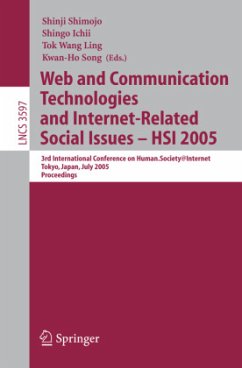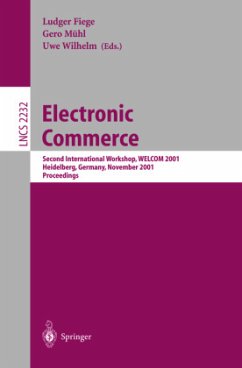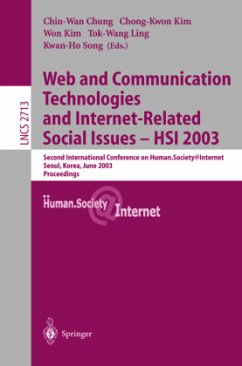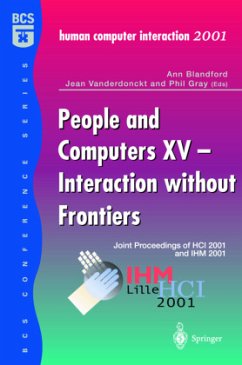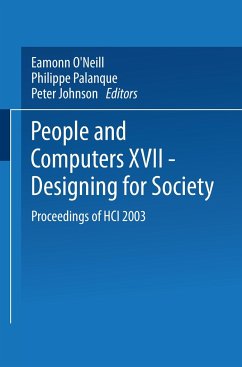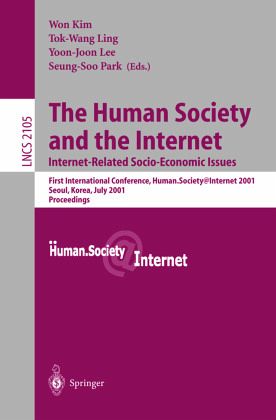
The Human Society and the Internet: Internet Related Socio-Economic Issues
First International Conference, Human.Society.Internet 2001, Seoul, Korea, July 4-6 2001. Proceedings
Herausgegeben: Kim, Won; Ling, Tok-Wang; Lee, Yoon-Joon; Park, Seung-Soo

PAYBACK Punkte
20 °P sammeln!
This book constitutes the refereed proceedings of the First International Conference on Human.Society§Internet, held in Seoul, Korea, in July 2001.The 32 revised full papers presented together with 4 invited papers were carefully reviewed and selected from a total of 85 submissions. The papers are organized in topical sections on digital economy, electronic commerce, digital divide, Internet status and new applications, virtual enterprises, cyber education, digital governance, medical computing, mobile computing, and human computing.
During the past several years, the world has entered the first phase of the Internet Revolution. Investors showed confidence and faith in the prospects of the Internet driven economy. In the US alone, some 30,000 dot com companies have sprung up to support electronic commerce with a wide variety of business models, technologies, and/or items or services to sell or even give away. Traditional businesses, so called brick and mortar, or offline, businesses, have started to respond to challenges by Internet based new competitors by augmenting their own businesses with Internet based, or online, businesses and/or filing lawsuits against them. The initial business to consumer orientation of electronic commerce is giving way to business to business commerce, with large corporations forming electronic exchanges or consortia to conduct commerce among members. Government, industry, and civic groups have started addressing social issues related to the Internet, such as taxation on electronic commerce, privacy, intellectual property rights, security, hacking, cyber crimes, digital divide, etc. Governments have started legitimizing electronic signatures and stepping up efforts to track down perpetrators of cyber crimes. The courts have started to wrestle with issues of privacy, intellectual property rights, crimes, and impediments to Internet driven economy.





